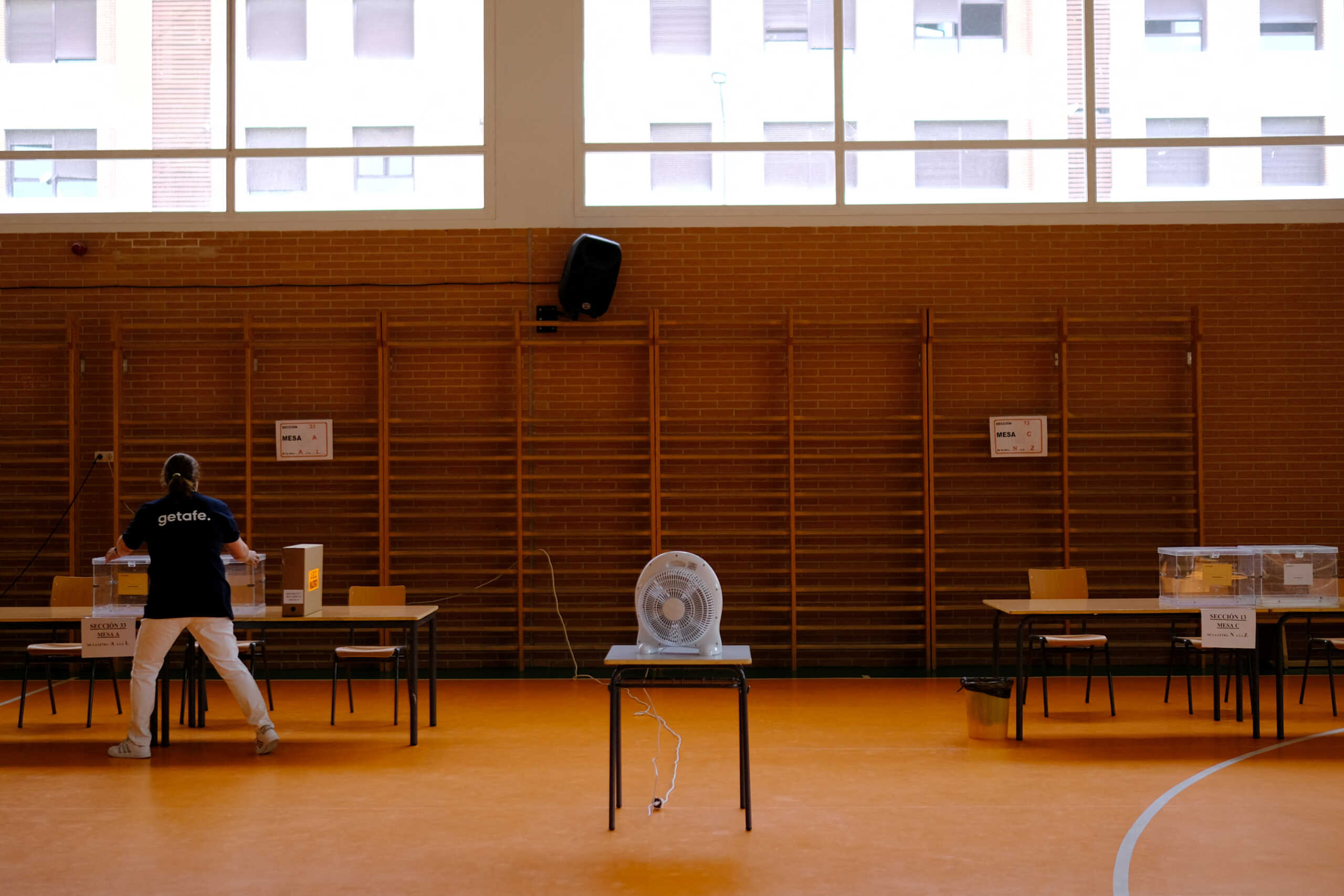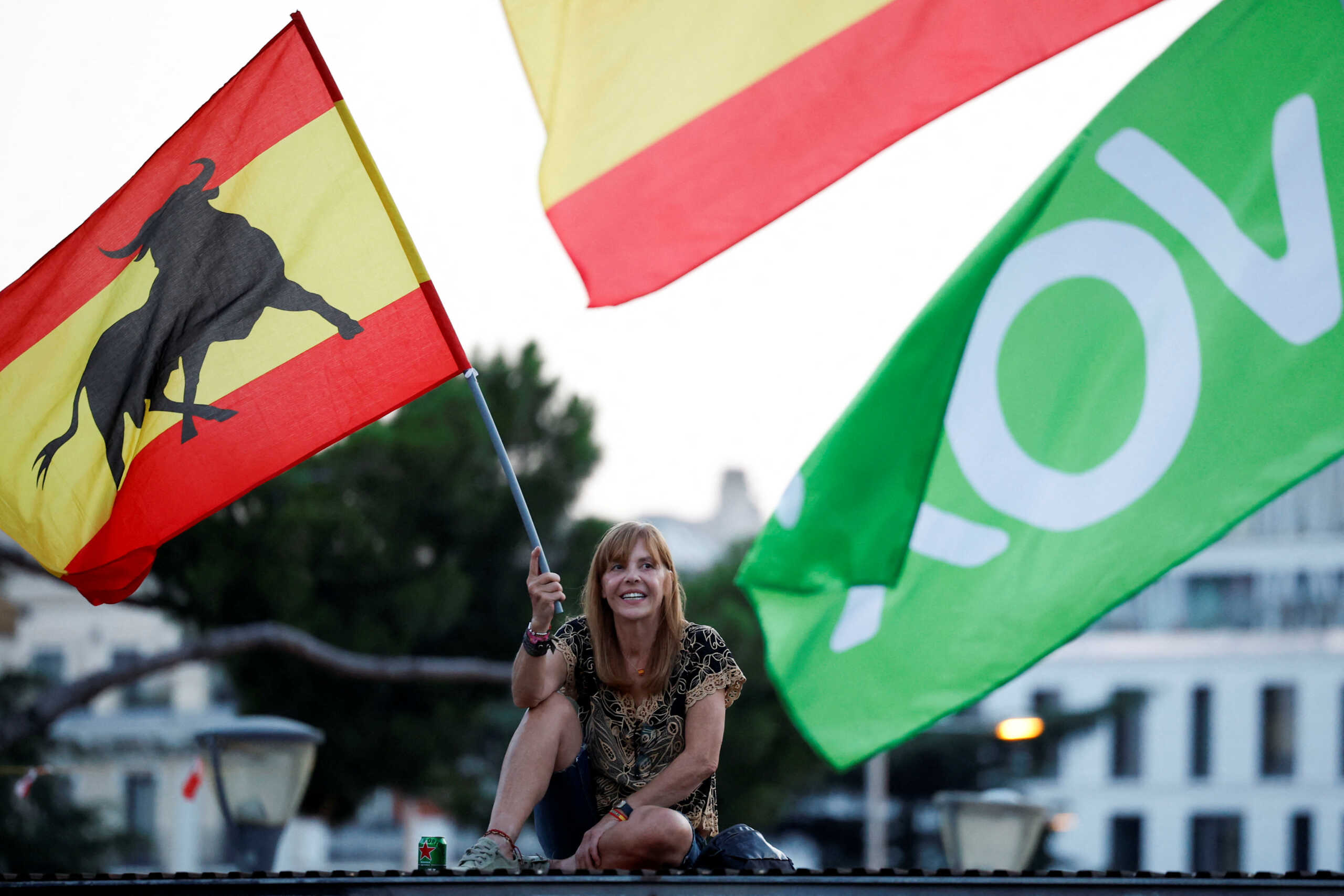
Parliamentary elections are taking place in Spain today, which are expected to consolidate the dominance of conservative parties across the bloc.
The elections, which Pedro Sanchez called after his forces were ousted in local elections on May 28, could see the far right gaining a share of power for the first time since the end of Franco’s dictatorship in the country in 1975.
Opinion polls show that the next Spanish government will be a coalition between the right-wing People’s Party and the far-right Vox party.
For Sanchez, who has been in power since 2018 and leads a “left” coalition with the radical left party Podemos, the stakes are high. The elections will also have consequences for the European left.
“It is clear that there is an ongoing shift (to the right) and Spain is a very important bulwark against this backward and backward current,” Environment Minister Teresa Ribera told La Vanguardia newspaper.
Vox factor
After the victory of the People’s Party on May 28, Alberto Núñez Fijo’s party seemed poised for a clear victory in the early July 23 elections.
But opinion polls then showed that while the People’s Party would win, it would not reach an absolute majority of 176 seats in the 350-seat parliament, meaning it would need Vox’s support to govern.
The ultra-nationalist and Eurosceptic Vox emerged in 2013 from a split within the People’s Party, and entered parliament in 2019 as Spain’s third-largest party.
But the right’s momentum slowed with the PP and Vox negotiations to rule in several areas wrested from the left.
During the talks, Vox has stood firm on many of its core principles, refusing to acknowledge gender-based violence or back down from its climate denial.
Although such positions are not supported by the People’s Party, Vox’s position has been overshadowed by Feijo’s campaign, which has positioned itself as a moderate.
Sánchez made the extremist threat his slogan, warning that a vote for the People’s Party would be like Vox’s invitation to join government, which he argues would be a huge setback for Spain.
His goal is twofold: to dissuade centrist voters from voting for the People’s Party, while at the same time mobilizing the half-million left-wing supporters who stayed home on May 28.
But Sanchez’s slim hopes of a comeback were dashed by poor results in opinion polls following his July 10 telephone brawl with Figo.
Sanchez also highlighted his work in the economy, which posted 5.5% growth last year. Spain also last month became the first major EU economy where inflation fell below 2%.
However, Sanchez’s problem is that citizens still see the state of the economy as very negative.
Sanchez has taken the lead on the media front by giving interviews to the most popular TV shows in Spain to promote his more cheerful side.
“Sanchez realizes he was wrong not to speak to the media, which he considers hostile,” says Cristina Monje, a professor of political science at the University of Zaragoza.
“Heart of the Sanchi”
But it may already be too late, given that his personal image is so bad outside left-wing circles, and he has also taken a hit as a result of several reforms initiated by Podemos that have caused a public backlash.
This was greatly exploited by Vigo, who focused his campaign on the “overthrow of the sanchía”—which he defined as “changing the form and substance” of politics in Spain and “the abolition of all those laws based on the minority which are detrimental to the majority”.
Sanchez hopes to form a coalition with Soumar’s new coalition led by Labor Minister Yolanda Díaz, an unlikely scenario given the polls. It has recently been supported, albeit reluctantly, by Podemos, which has faltered in the polls.
Recent polls have Soummar and Fox in third place.
Besides the large number of undecided voters, another factor is the timing of the election—at the height of summer when millions of vacationers are expected to vote by mail.
“We have never voted so late in the summer, when at least 10 million of Spain’s 37 million voters were on vacation,” said Pablo Simón, professor of political science at the University Carlos III in Madrid. “It is not clear how many voters will be away from their hometowns, how many will be willing to return to vote, how many will vote by mail… It is all a mystery.”
Indeed, Figo accused the prime minister of forcing more prosperous voters, traditionally right-wingers, to “choose between the ballot box or their leave”. He asked publicly, “Is the goal to reduce turnout and make it difficult for citizens to vote?”
Another factor that can complicate the voting process is heat.
Spain is experiencing its hottest summer on record with temperatures in July rising to levels not seen since 1961. The country is experiencing “abnormally high temperatures” and the Spanish Meteorological Service expects today’s elections to coincide with a severe heat wave.

“Hipster-friendly coffee fanatic. Subtly charming bacon advocate. Friend of animals everywhere.”






More Stories
F-16 crashes in Ukraine – pilot dies due to his own error
Namibia plans to kill more than 700 wild animals to feed starving population
Endurance test for EU-Turkey relations and Ankara with Greece and Cyprus